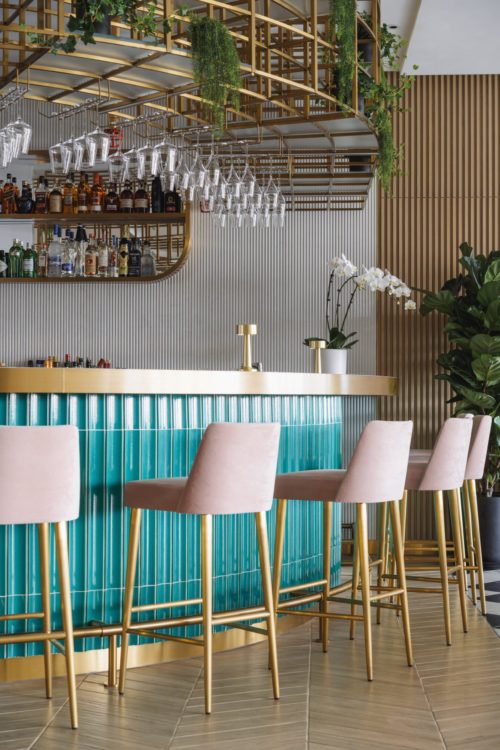The newly launched Yung’s Bistro is presided over by Shui-fai’s granddaughter, who tasked local studio Lim + Lu with devising a contemporary interior scheme that honours the humble beginnings of its predecessor, Yung Kee.
“For this project, the client’s brief is rather abstract; remembering their roots while paving the path for the future,” said the studio, which is led by Vincent Lim and Elaine Lu.
“It was important that the design draws inspiration from the flagship restaurant and allows customers to recognize that this new restaurant is born of the same meticulous DNA towards food preparation and detail-oriented customer service.”





